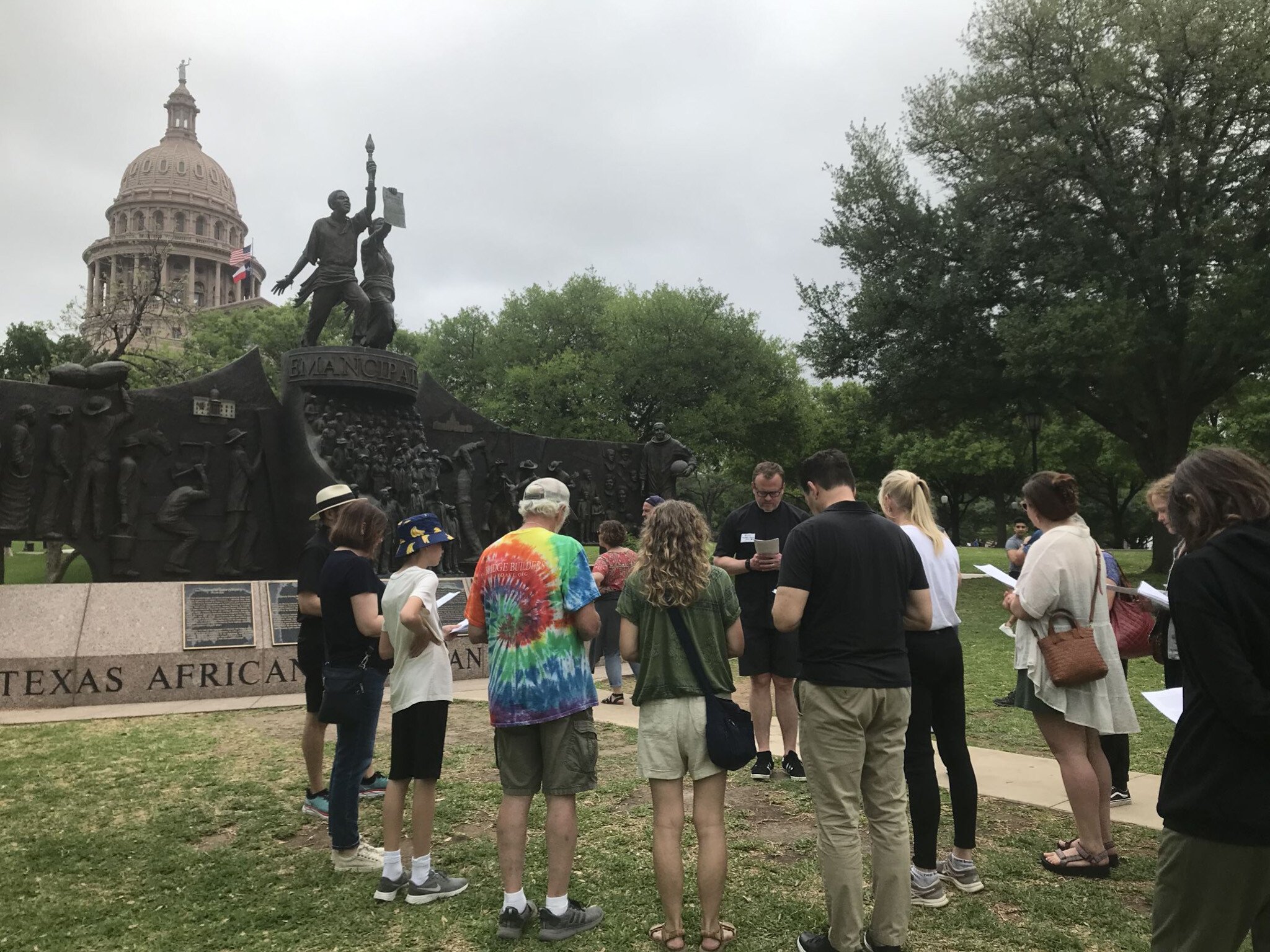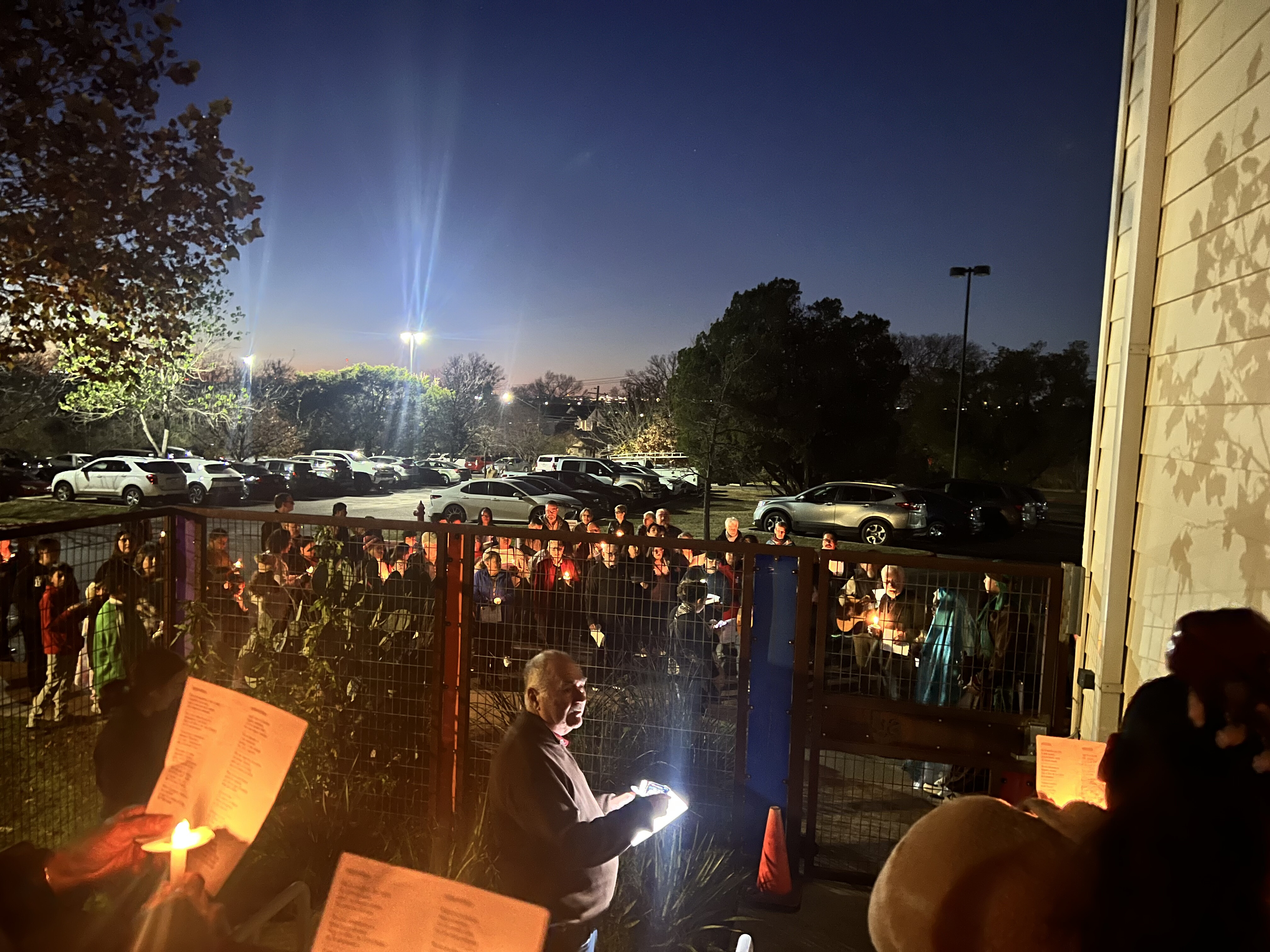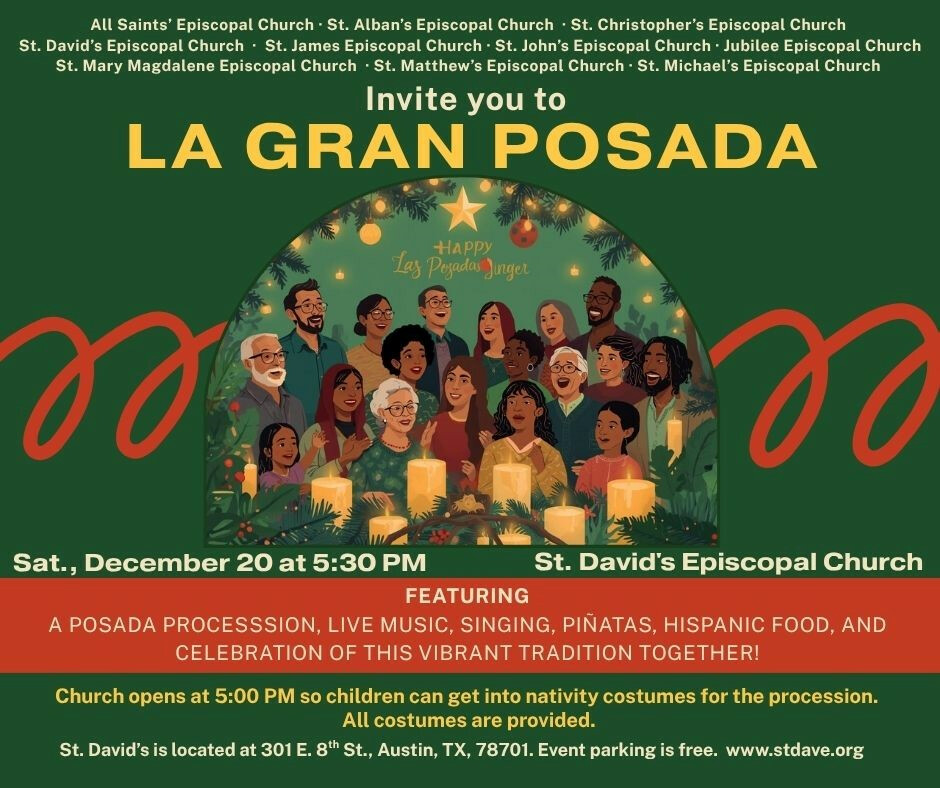
Friends in Christ,
In my homily this past Sunday, on the heels of the release of the video of Tyre Nichols last week, I noted that we can count on the world to continue to offer us heartbreaking opportunities for "Beatitude Living." As we absorb that we live in a world where something like this can even happen, I also invite you to pray, learn, and act. Finally, the world will be as we make it, and as Christians we are called to make a world that looks like the Kingdom of God.
What follows is a response with a specific invitation from our Racial Justice Committee, as well as a reflection from our own Presiding Bishop Michael Curry. Please take the time to review this, and take whatever steps feel necessary for you as we strive for Beatitude Lives.
In response to the tragic death of Tyre Nichols, we invite the St. David’s community to learn, pray, and act. Several linked resources are from the Episcopal Public Policy network’s page on responding to racist violence. We also list offerings available at St. David’s, in Austin, and on social media.
LEARN
We invite people to learn in community with St. David’s by joining the upcoming Sacred Ground offering and by engaging in the Lenten book study of Cole Arthur Riley’s book This Here Flesh. Resources for people to learn on their own as individuals are linked here. Please also check our website for updates on racial justice offerings and registration.
PRAY
We’ll pray in community in the groups mentioned above, and resources for people to pray on their own/with small groups are here. Also consider following #BlackLiturgies on social media for prayers by Cole Arthur Riley.
ACT
Here are resources for action produced on a national level; particularly resources under criminal justice reform (note Nine Actions on Police Reform). Here in Austin, you might want to become familiar with the work of the Austin Justice Coalition. Keep an eye out for further voter registration and actions by the Racial Justice Committee and our new director of Community Engagement and Advocacy.
Sense cannot be made of the murder of a young man at the hands of five men whose vocation and calling are to protect and serve. This was evil and senseless.
There is a passage from the Hebrew prophet Jeremiah, which is later quoted in Matthew’s Gospel when innocent baby boys are killed by an immoral dictator:
“A voice is heard in Ramah,
lamentation and bitter weeping.
Rachel is weeping for her children;
she refuses to be comforted for her children,
because they are no more.”
—Jeremiah 31:15, Matthew 2:18
With the murder of Tyre Nichols, another mother, as in the biblical texts, weeps, with the mothers of Emmett Till, Trayvon Martin, Michael Brown, George Floyd, Breonna Taylor, Ahmaud Arbery, and so many others. A family grieves. A community fears. A nation is ashamed. Like the psalmist in the Bible, something in us cries out, “How long, O Lord, how long?” How long violence, how long cruelty, how long the utter disregard for the dignity and worth of every child of God? How long?
As if this wasn’t enough, there is another horrible dimension to what happened. Tyre Nichols was beaten, kicked, and cursed as if he was not a human being. Then, after he was lying on the ground, having called for his mother, they let him stay there for several minutes without anyone, including the police and EMT who were present, providing medical assistance. Not one Good Samaritan.
Jesus once told a story to teach about what it looks like to love one’s neighbor, which Moses and Jesus both said is a commandment of God. It’s a story about a man beaten nearly to death and left on the side of the road to die by people who knew what Moses taught about love for God and neighbor—and what the prophet Micah taught when he said that God requires three things of us: to do justice, to love kindness, and to walk humbly with your God.
Only one person stopped to help the man, and he did so without regard for the fact that they were of different religions, nationalities, ethnic groups, and even different politics. This second man was a Samaritan, and he helped because the man on the road was human. He helped because he was a fellow child of God. He helped because the man lying on the side of the road, regardless of race, class, clan, stripe, or type, was his brother. And the man who helped has been called the Good Samaritan.
The fundamental call and vocation of law enforcement officials, and indeed every one of us, is that of the Good Samaritan.
Here is where there is hope: The Good Samaritan in the parable of Jesus was not the last one.
There are Good Samaritans who are government officials in Memphis who, after assessing what happened, fired the offending officers, charged them with crimes against human life and dignity, and have committed to addressing systemic and cultural issues that created an environment in which this evil was enabled.
There are Good Samaritans doing what is necessary to radically reform the environment and culture of law enforcement—to create an atmosphere in which the dignity and worth of every human being is respected, protected, affirmed, and honored.
There are Good Samaritans in law enforcement, and other first responders, who often work while others sleep, laboring to protect and serve, at times risking their own lives for the neighbor they do not even know.
There are Good Samaritans, people of goodwill and human decency, who are peacefully protesting. There are Good Samaritans who are activists working tirelessly for the realization of communities and countries where there is truly, as the Pledge of Allegiance proclaims, “liberty and justice for all.”
While we grieve, we cannot give in or give up. Just throwing up our hands in despair is not an option lest we leave a brother, a sister, a sibling on the side of the road again. No, let more Good Samaritans arise so that Tyre Nichols’ death will not be in vain.
Please pray for Tyre’s family, the whole Memphis community, this nation, and world. But also pray for people to rise up like the Good Samaritan and work to create change so this never happens again.
And may the soul of Tyre, and the souls of all the departed, through the mercies of God, rest in peace and rise in glory. Amen.
The Most Rev. Michael B. Curry
Presiding Bishop and Primate
The Episcopal Church
As always, if you need to talk about a pastoral issue, please contact a staff member or call the church (512.610.3500) to request one of our clergy reach out to you.
Peace,
Fr. Chuck Treadwell, Rector
Joy Harris Philpott, Racial Justice Committee Chair




Login To Leave Comment